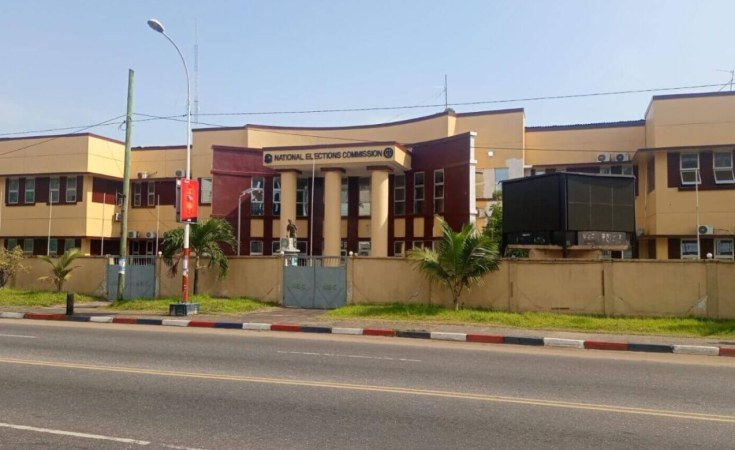A generation with no memory of the civil war will be voting in October - despite their abiding loss of faith in Liberia's politicians.
As the Comprehensive Peace Agreement that ended the 2nd Liberian Civil War was signed in Accra, Ghana twenty years ago today, chief mediator Abdulsalami Abubakar- a former Nigerian Army General- stated: "I want to believe that with the signing of this agreement today, Liberia will never be plunged into another spiral of violence in the quest for political power." So far, he has been right.
Liberia suffered two civil wars between 1989 and 2004 that killed hundreds of thousands of people, destroyed the economy and ripped apart the social fabric of the state. Since then, the country has had plenty of international help to maintain the peace- a UN peacekeeping mission known as UNMIL spent 15 years in the country, with as many as 15,000 troops at times; and the US alone has sent upwards of $2.4 billion dollars in aid. At the same time there has been a peaceful, democratic transition of power between one elected government and the next- when Ellen Johnson Sirleaf the Nobel Peace Prize winner handed power to George Weah in 2017.
But the real peacekeepers in Liberia are its young people. There is a generation of youth in Liberia today who are preparing to vote for the 1st time in their country's elections in October- and who have no memory of the war in which their parents suffered so deeply. 63% of Liberians are under the age of 25 years old and they are more connected, dynamic, tech savvy and politically conscious than ever before. Think of Satta Sheriff for example- a trailblazing feminist activist recognized by the UN who has been working to defend the rights of women and children since she was 9 years old. Or Ezekiel Nyanfor who has developed a toolkit to help young people across the continent advocate for solutions to climate change.
At the same time, there is a new generation of civic leaders who are now leading the way on issues such as inclusion, accountability and human rights. Eddie Jawolo runs NAYMOTE- an organization that hosts schools for young political leaders from across Africa; Anderson Miamen is relentlessly asking the government questions on issues of corruption through his organization CENTAL; and Adama Dempster who is campaigning for a war and economic crimes court to ensure justice for Liberia's previous atrocities. Meanwhile, world class entrepreneurs like James Mulbah and Ahmed Konneh are finding new ways to recycle Monrovia's mountains of trash and solve the stock-out problems in rural health centers respectively.
It is difficult to explain the challenges young people face in Liberia today- or how hard it is to solve problems and find any traction for good ideas. The country is beset by a poly-crisis of a kind we see elsewhere- with a combination of inflation, food insecurity, unemployment, climate change and more. But this is on top of devastating existing challenges- including one of the lowest levels of electrification in the world; one of the worst education records globally; and- even after the billions that poured in to bolster the health system during the Ebola crisis- endemic health challenges such as malaria.
Liberia's incredible youth are finding ways to problem-solve, bootstrap and innovate despite- not because of- those in positions of power. Above all, it is the corruption of politicians and business leaders that is truly undermining our future. Graft fuels political success and credibility, rather than the opposite; cozy relationships between lawmakers and CEOs divert public resources; and instead of support and recognition, anyone investigating wrong-doing often disappears.
We work with and speak to young Liberians daily and it is abundantly clear both that they have lost any trust they may have had in government and that structural violence is perhaps closer today in Liberia than at any time over the past twenty years. Preparations for the upcoming elections have been predictably late, mis-managed and politicized. And the fact is that none of the deeper causes of Liberia's civil war- including issues related to land, inequalities and justice- have been addressed.
Abubakar's statement holds true for now- but as we know from the 1st Liberian civil war, all it takes is for a small number of alienated, armed, young men to decide they have no better choice than to fight, and peace can evaporate quickly. We have made so much progress in Liberia despite the challenges- and our young people are our greatest asset. We must work with and for them to create pathways towards economic possibility, accountability and social mobility now more than ever.
Nyema Richards is Program and Learning Director at Accountability Lab Liberia.


